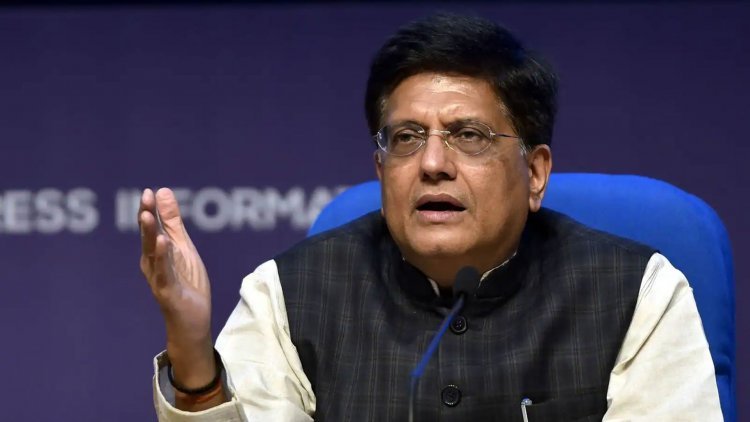India has had a spectacular success in the WTO ministerial conference, according to Piyush Goyal
"The outcome of the WTO's MC12 conference has completely satisfied India. India was successful in ensuring the farmers' and fishermen's livelihoods "According to Goyal.

On June 17, Commerce and Industry Minister Piyush Goyal stated India had had a fantastic triumph at the World Trade Organization's (WTO12th )'s ministerial meeting (MC12) in Geneva, Switzerland. Goyal headed India's team to the four-day global summit, which was extended for two more days due to heated talks between member governments over crucial topics.
"The outcome of the WTO's MC12 conference has completely satisfied India. India was successful in ensuring the farmers' and fishermen's livelihoods "According to Goyal. He went on to say that India was successful in persuading all governments to grant a patent waiver for Covid vaccine production.
Goyal was addressing to the media after the once-every-two-year mega conference of trade ministers from all 162 WTO member countries ended early Friday morning.
MC12 came to a close with agreements on a global IPR waiver for Covid vaccines as well as fishing subsidies to safeguard ocean resources. Despite heated debate, Moneycontrol reported on Thursday that both transactions were set to pass.
While India had advocated for more extensive steps in these sectors as well as agricultural negotiations, New Delhi has praised the final decision as promising.
"When the conference first began, everyone had written it off as a flop. Since 2015, there has been no decision, not even an outcome document, in the WTO. There were many arguments against multilateralism and the promise of globalisation. By ruling on matters that had been waiting for decades, this conference has reestablished the standing of multilateral organisations "Goyal was agitated.
Huge victories
"Currently, the fisheries agreement covers only illicit, unreported, and unregulated fishing. The possibility of expanding this to all government subsidies will be discussed in the future. Subsidies from the government are currently unrestricted "According to Goyal.
Instead, he noted, the WTO is aware of India's demand that countries who have continuously backed unlawful deep-sea fishing be regulated.
Goyal further stated that the agriculture industry in India will not suffer any negative consequences. He also stated that India's public stockholding programme for foodgrains will continue unabated. Goyal stated that talks on food security have progressed to some extent.
After being vetoed by India, a planned worldwide pledge to not restrict foodgrain exports to the World Food Programme (WFP), which aims to combat hunger in areas affected by conflicts, disasters, and climate change, was passed in a modified version.
Strictly limited scope
"The World Trade Organization has also decided to craft a big reaction to the epidemic," Goyal said, alluding to the Covid vaccination patent waiver. The MC12 has also agreed a temporary suspension of some provisions of the World Trade Organization's Agreement on Trade-Related Aspects of Intellectual Property Rights (TRIPS).
Parts of the TRIPS agreement might be suspended, allowing countries to overcome the legal obstacles caused by patents and enable the timely distribution of affordable medical products. The agreement, however, will only cover vaccines and not other things.
Despite India's insistence that all treatments and diagnostic technologies be included in the agreement, the final agreement will assist emerging and underprivileged countries in obtaining much-needed vaccines. According to Goyal. "The WTO has adopted the solution that resulted from continuous discussions on the subject between India, South Africa, the United States, and the European Union," he said.
In the future
The WTO has also resolved to extend the tax-free status of e-commerce transactions for another year.
Since 1998, WTO members have agreed not to levy customs taxes on electronic transmissions, and the moratorium has been extended on a regular basis at consecutive ministerial conferences. India, on the other hand, has grown to be a staunch opponent of the move, initially blocking the extension of the moratorium at MC12.




 admin
admin 




















